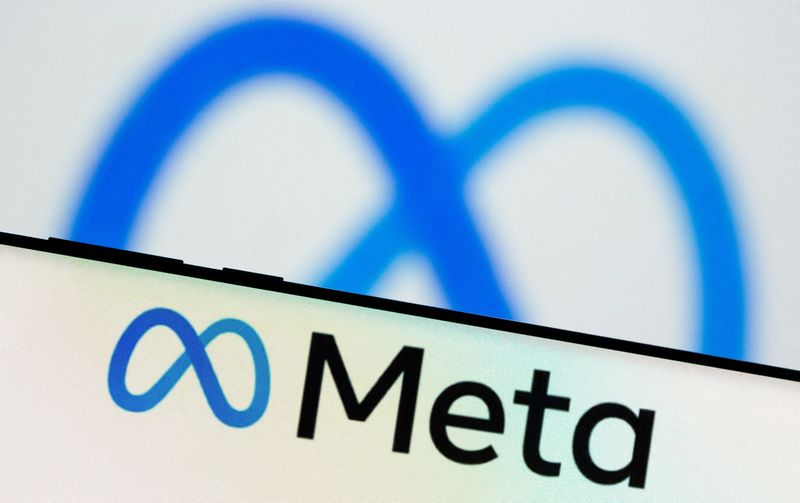By Katie Paul
(Reuters) - Meta Platforms Inc (NASDAQ:META) said on Thursday it is now rolling out a long-promised system for advertisers to determine where their ads are shown, responding to their demands to distance their marketing from controversial posts on Facebook and Instagram.
The system offers advertisers three risk levels they can select for their ad placements, with the most conservative option excluding placements above or below posts with sensitive content like weapons depictions, sexual innuendo and political debates.
Meta also will provide a report via advertising measurement firm Zefr showing Facebook advertisers the precise content that appeared near their ads and how it was categorized.
Marketers have long advocated for greater control over where their ads appear online, complaining that big social media companies do too little to prevent ads from showing alongside hate speech, fake news and other offensive content.
The issue came to a head in July 2020, when thousands of brands joined a boycott of Facebook amid anti-racism protests in the United States.
Under a deal brokered several months later, the company, now called Meta, agreed to develop tools to "better manage advertising adjacency," among other concessions.
Samantha Stetson, Meta's vice president for Client Council and Industry Trade Relations, said she expected Meta to introduce more granular controls over time so advertisers could specify their preferences around different social issues.
Stetson also said early tests showed no significant change in performance or price for ads placed using more restrictive settings, adding that those involved in the tests were "pleasantly surprised."

However, she cautioned that the pricing dynamic could change, given the auction-based nature of Meta's ads system and the reduction in inventory associated with any restrictions.
The controls will be available initially in English- and Spanish-speaking markets, with plans to expand them to other regions - and to the company's Reels, Stories and video ad formats - later this year.